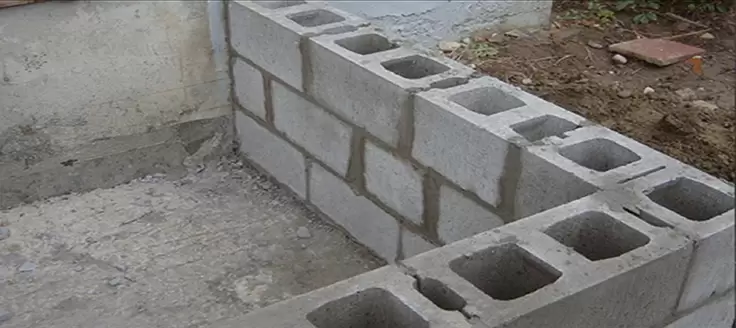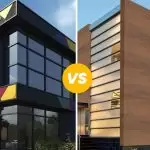In the world of construction, innovation plays a pivotal role in shaping the way we build. One such innovation that has revolutionized the industry is the hollow concrete block. These blocks, made from a combination of cement, sand, and aggregate, offer a wide range of benefits and have become a preferred choice for architects and builders alike. In this blog, we will explore how they have transformed the way we construct buildings.
Post your Requirement
Key Features of Hollow Concrete Blocks
-
Lightweight and Easy to Handle:
Hollow concrete blocks are designed with hollow cavities within their structure, making them significantly lighter than traditional solid concrete blocks. This feature allows for easier handling, reducing labor and transportation costs during construction. The lightweight nature of these blocks also enables faster construction, making them an ideal choice for time-sensitive projects.
-
Enhanced Thermal Insulation:
One of the standout features of hollow concrete blocks is their superior thermal insulation properties. The hollow cavities inside the blocks act as natural air pockets, effectively reducing heat transfer. This insulation helps regulate indoor temperatures, keeping buildings cooler in hot climates and warmer in colder regions. As a result, hollow concrete blocks contribute to energy efficiency and reduce the reliance on artificial heating and cooling systems, ultimately leading to cost savings and environmental benefits.
-
Soundproofing Capabilities:
The air-filled hollow spaces within the blocks also play a crucial role in dampening sound transmission. This makes hollow concrete blocks an excellent choice for buildings situated in noisy environments or those that require soundproofing, such as theaters, music studios, or residential complexes located near busy roads. The acoustic properties of these blocks help create a peaceful and serene environment within the building, enhancing overall comfort and quality of life.
-
Structural Strength and Durability:
Although hollow, these blocks maintain their structural integrity due to their reinforced design. The hollow cavities are strategically positioned to provide optimal load-bearing capabilities. This makes hollow concrete blocks exceptionally strong and durable, ensuring the longevity of the structure. The blocks are also resistant to fire, pests, and harsh weather conditions, further enhancing their durability and reducing maintenance costs over time.
-
Design Flexibility:
Hollow concrete blocks offer immense design flexibility, making them suitable for a wide variety of architectural styles. They can be easily cut, shaped, and molded to meet specific design requirements. The hollow cavities within the blocks allow for the installation of electrical and plumbing conduits without the need for additional chases or channels. This results in cleaner, more streamlined interiors and greater freedom for creative expression in building design.
Suggested Read: Advantages and Disadvantages of Fly Ash in Concrete
Applications of Hollow Concrete Blocks
-
Load-Bearing Walls:
Hollow concrete blocks are frequently used to construct load-bearing walls in residential, commercial, and industrial buildings. Their reinforced design and structural strength make them capable of supporting vertical loads and ensuring the stability of the structure.
-
Retaining Walls:
Hollow concrete blocks are suitable for constructing retaining walls that hold back soil or prevent erosion. The cavities within the blocks can be filled with concrete and reinforced with steel bars to provide the necessary strength and stability to withstand the lateral pressure exerted by the retained soil.
-
Boundary Walls:
Hollow concrete blocks are commonly employed in the construction of boundary walls that define the perimeters of residential complexes, commercial properties, and industrial sites. These walls serve as a barrier, offering security, privacy, and aesthetic appeal to the property.
-
Facade Cladding:
The design flexibility of hollow concrete blocks allows them to be used as an outer layer or cladding for building facades. By incorporating different textures, colors, and patterns, hollow blocks can enhance the aesthetic appeal of a structure while providing thermal insulation and weather resistance.
-
Sound Barriers:
The soundproofing capabilities of hollow concrete blocks make them an ideal choice for constructing sound barriers along highways, railways, or near noisy industrial areas. The hollow cavities within the blocks help absorb and reduce noise transmission, creating a quieter environment for nearby residents.
-
Basement Construction:
Hollow concrete blocks are suitable for constructing basement walls due to their load-bearing capacity, durability, and resistance to water penetration. They help create a solid foundation and provide structural support for the rest of the building.
-
Decorative Features:
Hollow concrete blocks can be used creatively to incorporate architectural elements, such as decorative screens, garden walls, planter boxes, or steps. Their versatility allows designers and architects to explore innovative ways to add visual interest and functionality to a building or outdoor space.
Conclusion:
Hollow concrete blocks have undoubtedly transformed the construction industry with their remarkable advantages. From enhanced thermal insulation and soundproofing capabilities to lightweight handling and design flexibility, these blocks have proven their worth in numerous construction projects. By choosing hollow concrete blocks, builders and architects can optimize construction efficiency, create energy-efficient structures, and provide a comfortable and sustainable environment for occupants. With ongoing advancements in construction technology, hollow concrete blocks continue to push the boundaries of what is possible in modern building design and construction.























Post A Comment